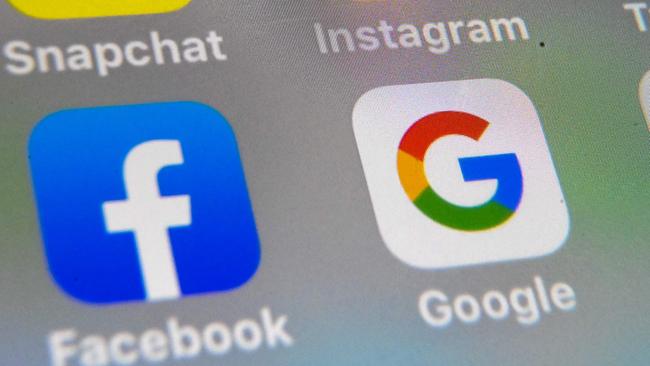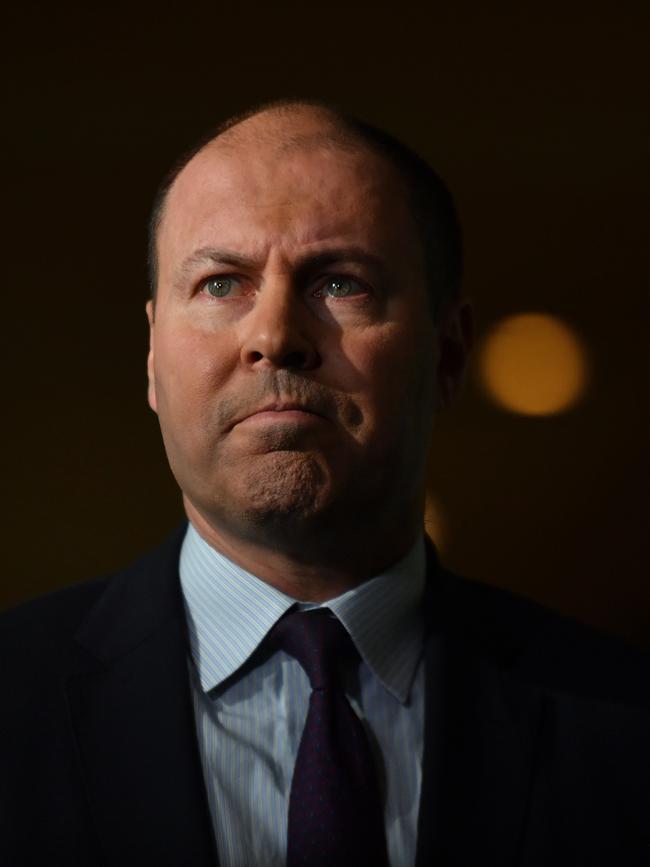New code to force Google, Facebook to pay for news
The ACCC will make a mandatory digital code of conduct, forcing tech giants to pay media sources for the news content their websites use.
SA News
Don't miss out on the headlines from SA News. Followed categories will be added to My News.
- Government to overhaul digital media rules
- Privacy experts reject Facebook’s ‘gaslighting’ response to ACCC
- AAP closes down: Global tech giants put media jobs at risk
Facebook and Google will be forced to pay Australian media organisations for their content or face sanctions under a powerful Federal Government intervention.
The consumer watchdog will develop a mandatory code of conduct for digital platforms.
This will stop the global tech giants from profiteering off others’ work, a move industry says will help to secure the future of Australian journalism.
Treasurer Josh Frydenberg has ordered the Australian Competition and Consumer Commission to have a draft code of conduct ready for consultation by the end of July, as media organisations struggle from a downturn in advertising revenue due to the coronavirus.
“It’s only fair that those that generate content get paid for it,” Mr Frydenberg said. “We are not seeking to protect traditional media companies from the rigour of competition or technological disruption.
“Rather, to create a level playing field where market power is not misused, companies get a fair go and there is appropriate compensation for the production of original news content.”
News Corp Australia, publisher of The Advertiser, has commended the action, which follows the ACCC’s world-leading Digital Platforms Inquiry last year.
Executive chairman, Michael Miller, said for two decades Google and Facebook had built trillion-dollar businesses by using other people’s content and refusing to pay.

“Their massive failure to recognise and remunerate creators and copyright owners has put at risk the original reporting that keeps communities informed,” Mr Miller said. “The decisive move by the Australian Government to go directly to a mandatory code of conduct between the international tech giants and Australian news media companies is a vital step that can help secure the future of Australian journalism.”
Mr Miller has called for the code to be urgently installed, saying it was essential to set the rules to correct the power imbalance between the tech platforms and local news media companies.
Mr Frydenberg said the ACCC found that between eight to 14 per cent of Google search results included reports from news websites.
Other academic studies have found that most people who access their news online do so via social media or methods other than going to the original news source, he said.
Mr Miller said the COVID-19 crisis highlighted the need for trusted, professional news sources.
“The rush of audiences back to trusted news sources during the COVID 19 crisis has been a powerful reminder that real journalism must not be destroyed by companies that take it for their own use and refuse to pay,” he said.
“The platforms have had many years to act fairly and have chosen not to, and steps like the one now taken by the Australian Government are now finally necessary.”
In December the consumer watchdog handed down scathing findings into the digital platforms, which included: the need for reform to better protect consumers, boost transparency, address power imbalances and ensure that market power was not used to lessen competition in media and advertising services.
The Government then directed it to develop voluntary codes. But the ACCC this month revealed it was unlikely that any voluntary agreement would be reached.
Along with fair remuneration, the mandatory code will also include the issue of data sharing, including changes to algorithms affecting how news content is ranked and displayed. It will govern the commercial relationships between Facebook, Google and news media businesses. Other social media platforms will also be forced to comply or face enforcement, penalty or dispute resolution mechanisms.
Mr Frydenberg said there were challenges ahead; similar moves in France and Spain have met with fierce resistance and tech giant withdrawal. “However there is a need to take this issue head on,” he said. “There too is much at stake, nothing less than the future of our media landscape.”
Digital giants will now be held to account
Opinion – Josh Frydenberg
When the First Fleet landed on our shores in 1788, stacked on board was a second hand printing press. It soon became the centre of a busy operation.
But no one could have imagined that nearly 250 years on, the printing press would have given way to the digital age. We now live in a world of instantaneous communication where everybody with a digital device is connected and empowered.

The benefits to consumers have been immense, but so too has the disruption. Nowhere is this more apparent than with respect to the role and viability of the traditional media outlets. As the technology of the digital platforms have evolved, so too has their market dominance. In particular, Google and Facebook, who are now among the most powerful and valuable companies in the world.
For every $100 spent by advertisers in Australia on online advertising, excluding classifieds, $47 goes to Google, $24 to Facebook and $29 to other participants. In Australia, this market is worth nearly $9 billion a year and has grown more than eight-fold since 2005. In a groundbreaking report that took 18 months to prepare, the Australian Competition and Consumer Commission (ACCC) found that more than 98 per cent of online searches on mobile devices are with Google, while Facebook has approximately 17 million users who are connected to its platform for at least half an hour a day.
This has created a level of market concentration and power that was never envisaged by our regulatory system.
This was why we tasked the ACCC to facilitate the development of a voluntary code of conduct governing the relationships between digital platforms and media businesses. However, since that announcement late last year, it has become clear that insufficient progress with the parties has been made.
It is in this context that the Government has taken the decision to move from a voluntary to a Mandatory Code, the preparation of which will be led by the ACCC.
It is only fair that the search engines and social media giants pay for the original news content that they use to drive traffic to their sites.
Josh Frydenberg is the Treasurer of Australia

